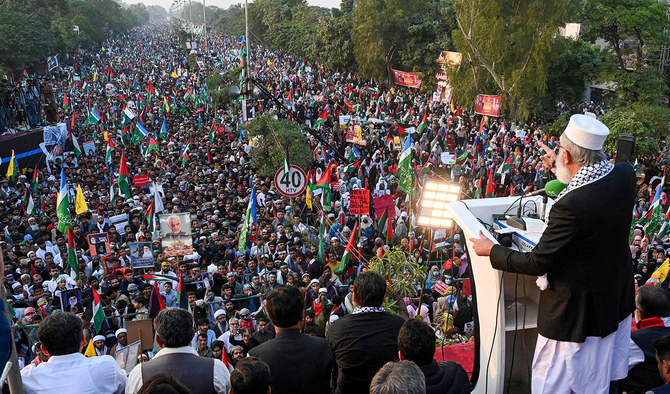We can see that after our uprising and revolution, the fascists and their accomplices are causing chaos and sabotage
 KRC TIMES Desk
KRC TIMES Desk

Arun Srivastava
What has happened in Bangladesh was inevitable. It is extreme historical irony that Sheikh Hasina had to eventually flee Bangladesh, the country which was literally fathered by her father Sheikh Mujibur Rahman. Hasina, who once helped rescue Bangladesh from military rule and restore the democratic governance, has been primarily responsible for creation of this situation.
This is the second incident in the Indian subcontinent when the head of country had to flee the country to escape the peoples’ wrath. In 2022, Sri Lankan President Gotabaya Rajapaksa had to flee in the wake of people movement against him.
Significantly, just after the Sri Lankan incident, some opposition leaders and opinion makers had predicted a similar revolt in Bangladesh. Eventually, it happened on August 4-5.
There was a typical similarity into what happened in Sri Lanka and Dhaka. Sri Lankan people had raided President’s palace and occupied it. The incident that took place in Dhaka on August 5 carried shades of those in Colombo two years earlier. People raided Ganabhaban (Hasina’s residence) and pillaged it. It was their way of expressing their anger.
Hasina, after winning a fifth term as prime minister in January, has been gradually but systematically shaping up as an autocrat in the garb of democrat. No doubt she propelled economic growth in a country once written off by US’s Henry Kissinger as an irredeemable “basket case”.
Only last year, she had even promised to turn all of Bangladesh into a “prosperous and developed country”. But like India’s Prime Minister Narendra Modi, she also conveniently forgot that Bangladesh has 18 million unemployed young Bangladeshis.
Like Modi, she was also praised by her blind supporters and yesmen for leading Bangladesh through an economic boom. It experienced robust economic growth, primarily driven by the garment export industry.
Since 2009, the economy grew by an average of over six percent annually. Significantly in 2021, its per capita income surpassed that of India. Notwithstanding these achievements, the economists and experts point out that she lacked an inclusive vision for country’s economic development and growth.
Her failure to give a direction to economic growth gave rise to protest and dissension. She cracked down on dissenters and a number of prominent social and political activists were put in jail. Hasina’s administration faced heavy criticism for its repressive measures.
She ruthlessly suppressed voices of protest and penalised anyone she perceived as a threat or dissenter. After securing her fifth term in power this January, she turned even more autocratic, cracking down on free speech and punishing dissent and opposition.
Hasina’s tenure was marked by the use of security forces, including the notorious Rapid Action Battalion paramilitary, which she was accused of using to abduct and even kill opposition members and dissenters, and allegedly rig the elections.

Even the judiciary, a largely bipartisan institution, became compromised during her tenure, forcing a chief justice to flee the country after he opposed her in a ruling.
Hasina controlled the media and maintained a sustained narrative against her opponents. Most of Bangladesh’s mainstream media outlets are owned by businesses with ties to the Awami League.
Media has the main task of depicting her supporters as the legitimate heirs to the legacy of the country’s independence and its achievements, while portraying dissenters and opposition members from the Bangladesh Nationalist Party and Jamaat-e-Islami as Razakars or “extremists”.
Former PM and key opposition leader Begum Khaleda Zia was imprisoned in 2018 on corruption charges, while a leading figure in Jamaat-e-Islami was executed in 2016.
It is a coincidence that there are many similarities between the governance of Hasina and Narendra Modi. Political prisoners in India are languishing in jail without trials. Even in most of the cases, no chargesheet has been filed.
Some have been in jail for more than six years. Between 2016 and 2020, about 24,134 individuals have been charged with the Unlawful Activities (Prevention) Act (UAPA) alone, only 386 of whom have reportedly been acquitted.
The rightist forces in Bangladesh have been quite active and often have been posing serious problems for secular forces and parties. Jamaat-e-Islami, which provided protection to Razakars during Bangladesh liberation war, were active even in the post-Independence period.
The organization was initially banned by the Sheikh Mujibur Rahman government for collaborating with Pakistani forces during the 1971 Liberation War. Jamaat members were implicated in forming auxiliary forces such as Razakar, Al-Badr, Al-Shams, and the Peace Committee, which were involved in atrocities against Bengali freedom fighters, particularly targeting Hindus. In 2013, the Election Commission of Bangladesh cancelled Jamaat’s registration following a court ruling, a decision upheld by the Supreme Court’s Appellate Division in 2023.
The situation in Bangladesh would not have deteriorated to such an extent if Hasina had shown little amount of political maturity in handling the Supreme Court verdict on reservation for freedom fighters. Students were protesting the court verdict on job quotas. Some members of the Jamaat were trying to take benefit out of the verdict.
This was opposed by students. They were for quota only for the family members of the genuine freedom fighters. Unfortunately, Hasina did not bother to look at their demand in proper perspective. She remarked: “If the grandchildren of freedom fighters don’t receive [quota] benefits, who will? The grandchildren of Razakars?”
Obviously this hurt the agitating students. They began protesting within hours, marching through Dhaka University’s campus, chanting a provocative slogan: “Who are you? I am Razakar.”
Hasina took it as a challenge to her authority. It is travesty of fact, since both Hasina and students, were on the same page. But her arrogance was primarily responsible for escalation in violence.
According to Human Rights Watch, since Sheikh Hasina’s tenure began in 2009, security forces have been implicated in more than 600 enforced disappearances. Between January 2015 and December 2020, at least 755 people described as “militants” or “terrorists” by security forces were killed in 143 alleged shootouts and gunfights across the country, according to another HRW report.
The Bangladesh judiciary must also be held responsible for aggravating the situation through its extraneous orders. Jamaat-e-Islami, Pakistan-linked terror outfit which has always been on the look put for occasion to ignite violence in the country, used the July 28 verdict of a tribunal to instigate the people. Six members of ‘Razakar Bahini’ were sentenced to death for ‘crimes against humanity’ by Bangladesh’s International Crimes Tribunal on July 28.
All the six Razakars— A Amjad Hossain Howladar, Sahar Ali Sardar, Atiyar Rahman, Motachim Billah, Kamal Uddin Goldar, and Nazrul Islam — are currently on the run. The three-member tribunal headed by Justice Mohammad Shahinur Islam found them guilty of ‘crimes against humanity,’ including mass killings, torture and arson.

Turmoil in Bangladesh does not seem to cease with Sheikh Hasina’s exit from the country. Several miscreants have now stormed into a jail, setting over 500 inmates free. One thing is certain: India will have to face a very hostile new caretaker government that is expected to take over the power within a couple of day.
The students have urged Bangladesh President Mohammad Shahabuddin to announce the government. They have also approached the Army chief to hasten up the process of installation of new government.
The protesting students have been quite hostile to India and the Modi government. Nevertheless, political and diplomatic circles are apprehensive of the developing situation.
In a significant step, West Bengal Chief Minister Mamata Banerjee has appealed to people of all communities with folded hands “to remain calm and not engage in any communal behaviour or take the law into their own hands. If our brothers and sisters who are there face some trouble, the governments of India and Bangladesh will look into it.”
The agitating student leaders of Bangladesh have cautioned: “We can see that after our uprising and revolution, the fascists and their accomplices are causing chaos and sabotage.
In various places, shootings are taking place, temples are being attacked, and there is sabotage and looting. We believe that these incidents are being orchestrated to undermine our students’ and citizens’ revolution. We urge the dear students-citizen striving for freedom to remain vigilant and cautious”.


